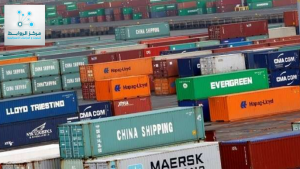By : Shatha kalel
The first half of 2024 saw significant activity in Iraq’s trade relations with a select group of 11 developed and emerging economies, including China, India, Turkey, South Korea, the United States, Germany, Jordan, Brazil, Japan, Saudi Arabia, and Australia. The total trade volume between Iraq and these countries reached $65 billion, marking a 10% increase compared to the same period in 2023. This surge highlights the growing importance of international trade in Iraq’s economic landscape, particularly in its exchanges with these key global players.
Overview of Iraqi Trade Exchange
Iraq’s trade activities have historically been heavily influenced by its oil exports, which continue to be the primary driver of its economy. In the first half of 2024, Iraq exported goods worth $45 billion to the aforementioned countries, with crude oil making up the majority of these exports. This represents an 11.6% increase in exports compared to the same period in the previous year. On the import side, Iraq brought in $19.6 billion worth of goods, an 8.1% increase from 2023. The trade balance stood at $26 billion in Iraq’s favor, reflecting a 14.4% improvement from the previous year.
Analysis of Trade Partners
Among Iraq’s trade partners, China emerged as the most significant, both in terms of imports and exports. China is the largest importer of Iraqi goods, mainly crude oil, and also the leading exporter to Iraq. Following China, India, South Korea, and the United States are major importers of Iraqi goods, with similar patterns of dependency on Iraq’s crude oil exports.
On the import side, Turkey stands out as Iraq’s second-largest supplier of goods, following China, and is also the country with which Iraq has the largest trade deficit—$5.2 billion in favor of Turkey. This deficit is a result of the high volume of Turkish goods entering the Iraqi market, ranging from consumer products to industrial machinery.
Economic Implications for Iraq
The data reveals a strong trade surplus for Iraq, primarily due to its substantial oil exports. This surplus is vital for Iraq’s economy, providing much-needed foreign exchange reserves and supporting the country’s financial stability. However, the reliance on a few key partners and the dominance of oil in trade can expose Iraq to economic vulnerabilities. Fluctuations in global oil prices or changes in demand from major importers like China and India could significantly impact Iraq’s economic health.
The large trade deficit with Turkey highlights the challenges Iraq faces in diversifying its economy. While oil exports bring in significant revenue, Iraq’s dependence on imported goods for domestic consumption and infrastructure development creates imbalances. This underscores the need for Iraq to develop its non-oil sectors, such as agriculture, manufacturing, and technology, to reduce reliance on imports and create a more balanced trade structure.
Future Projections and Strategic Considerations
Looking ahead, the trade volume between Iraq and these countries is expected to reach $130 billion by the end of 2024. When including trade with the United Arab Emirates and Iran—both of which are significant but not fully accounted for in the first half of the year—the total trade volume could rise to $160 billion. This continued growth presents both opportunities and challenges for Iraq.
The projected increase in trade underscores the importance of strategic economic planning for Iraq. To sustain its trade surplus and mitigate risks associated with global market fluctuations, Iraq must focus on economic diversification. Enhancing industrial output, improving agricultural productivity, and investing in renewable energy could help Iraq reduce its dependence on oil exports and create a more resilient economy.
In conclusion, while Iraq’s trade relationships with developed and emerging economies provide substantial economic benefits, they also highlight the need for strategic diversification. By leveraging its trade surplus to invest in non-oil sectors, Iraq can build a more balanced and sustainable economy, better equipped to handle future challenges in the global market.
Economic Unit/North America Office
Al Rawabet Center for Research and Strategic Studies

